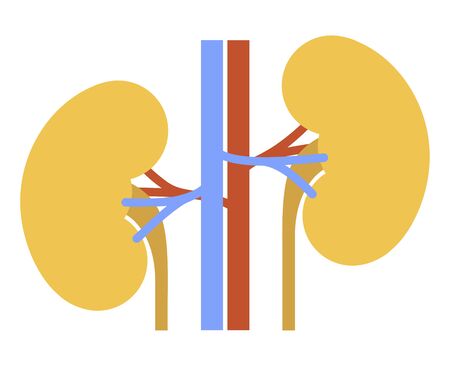Roots of Healing: Early Mind-Body Practices in Britain
Long before the advent of modern medicine, the British Isles were home to rich traditions that recognised the intricate connection between mind and body. Ancient Celtic and Druidic cultures, deeply attuned to the rhythms of nature, believed that physical health could not be separated from mental and spiritual well-being. Their holistic approach was woven into daily life, with healing rituals often conducted at sacred sites such as groves, springs, and standing stones—places where natural energies were thought to converge.
These early Britons revered the cyclical patterns of the seasons, seeing them as powerful influences on both body and spirit. For example, Beltane and Samhain marked key points in the year when communal ceremonies promoted collective renewal and protection against illness. Folk healers and wise women—sometimes called cunning folk—used herbal remedies in tandem with incantations or meditative practices, aiming to restore harmony within individuals and their environment. Such methods reflected an understanding that emotional disturbances could manifest as physical symptoms, a perspective echoing through centuries of British healing lore.
This ancient wisdom laid a foundation for later mind-body philosophies in Britain, emphasising balance, seasonal adaptation, and deep respect for nature’s cycles. Even today, echoes of these practices can be found in rural traditions and modern holistic therapies that draw inspiration from the land’s ancestral knowledge.
2. Medieval Monastic Wisdom: Herbal Lore and Spiritual Care
During the medieval period, British monasteries emerged as vital centres of both physical healing and spiritual nourishment. Far more than places of worship, these monastic communities cultivated extensive herb gardens and preserved ancient medical manuscripts, becoming sanctuaries where mind-body medicine flourished in harmony with the rhythms of nature. The monks’ daily routines interwove herbal remedy preparation, contemplative prayer, and meditative practices that encouraged balance between body and spirit—a reflection of the holistic approach that resonates deeply with both traditional Chinese and Western natural philosophies.
The Monastery as a Centre for Healing
Monasteries such as Glastonbury Abbey and Lindisfarne Priory were renowned not only for their religious devotion but also for their role in preserving knowledge of medicinal plants. Monastic infirmaries became early hospitals, where laypeople sought solace and cures amidst the tranquil cloisters. Here, herbalists—often monks or nuns—blended remedies from native British plants such as lavender, sage, comfrey, and yarrow. These remedies were combined with spiritual care: prayer, chanting, and quiet contemplation were seen as essential to recovery, in line with the belief that illness often reflected an imbalance between mind and body.
Key Elements of Monastic Mind-Body Medicine
| Element | Description |
|---|---|
| Herbal Remedies | Cultivation and use of medicinal herbs tailored to individual ailments; recipes recorded in illuminated manuscripts. |
| Meditation & Prayer | Daily spiritual practices believed to calm the mind, reduce stress, and promote inner harmony. |
| Holistic Care | Treatment addressed both physical symptoms and emotional or spiritual well-being. |
| Education & Preservation | Copying of ancient texts and teaching apprentices ensured transmission of healing wisdom through generations. |
The Lasting Legacy on British Culture
This monastic heritage left a lasting imprint on British approaches to wellness. Even today, many English country gardens echo medieval monastic herb beds, while modern holistic health movements draw inspiration from these ancient practices. The gentle integration of plant medicine with spiritual self-care reflects a time-honoured understanding: that true health arises when we nurture both body and mind in unison—an ethos still cherished across Britain’s green landscapes.

3. The Enlightenment and Scientific Medicine: Shifting Perspectives
The arrival of the Enlightenment in Britain during the 17th and 18th centuries marked a profound transformation in the way health and illness were understood. This era, often referred to as the Age of Reason, placed great emphasis on rationality, empirical evidence, and scientific investigation. Traditional British approaches to mind-body medicine—rooted in ancient herbalism, folk remedies, and a holistic balance of body, spirit, and environment—found themselves at a crossroads.
Challenging Traditional Wisdom
With the rise of scientific inquiry, many longstanding beliefs about health came under scrutiny. Influential figures such as Sir Isaac Newton and Robert Boyle inspired physicians to seek logical explanations for disease, shifting focus from mystical or spiritual causes to observable phenomena. The humoral theory, which had dominated British medicine for centuries by emphasising bodily balance through diet, lifestyle, and emotional wellbeing, was increasingly questioned. Instead, anatomy, physiology, and chemistry began to form the backbone of medical knowledge.
The Emergence of New Treatments
This period saw the development of new treatments grounded in laboratory research rather than tradition alone. For example, inoculation against smallpox gained traction after Lady Mary Wortley Montagu introduced the practice from Turkey. Such interventions demonstrated both the promise and controversy of scientific medicine, as communities weighed their trust in ancestral wisdom against novel methods.
Mind-Body Approaches Amidst Change
Despite this rational shift, not all holistic principles were abandoned. Many British physicians recognised that mental states influenced physical health—a concept echoed in what we now call psychosomatic medicine. However, these ideas were increasingly reframed within the language of science rather than mysticism. The Enlightenment thus did not eradicate mind-body medicine; instead, it transformed its context and vocabulary.
As Britain moved forward into modernity, the interplay between scientific progress and holistic healing continued to shape national attitudes towards wellness. The Enlightenment’s legacy is therefore one of both disruption and integration—challenging traditional approaches while laying the groundwork for future reconciliation between science and the art of healing.
4. Victorian Era Wellness: The Emergence of Mental Health Understanding
The Victorian era in Britain, spanning most of the 19th century, marked a profound transformation in the understanding and treatment of mind-body health. This period saw the origins of modern psychiatry and a growing public concern for mental well-being, intertwined with broader reforms in public health.
The Birth of Psychiatry and Institutional Care
Before the Victorian era, those suffering from mental distress were often misunderstood, facing social stigma or relegated to poorhouses. However, the 19th century ushered in a new approach as the medical community began to distinguish between various forms of mental illness. The term “psychiatry” was coined, and asylums evolved into more than mere holding facilities—they became places aiming for compassionate care and moral management.
The Sanatorium Movement
Influenced by both European practices and British reformers, the sanatorium movement gained momentum. These institutions sought to provide structured environments that balanced rest, nutrition, physical activity, and meaningful occupation—an early recognition of the need to harmonise body and mind for recovery. Many physicians advocated for holistic routines reminiscent of ancient herbal remedies and lifestyle adjustments, echoing core principles familiar to traditional medicine.
Victorian Approaches to Mind-Body Health
| Aspect | Traditional Remedies | Victorian Innovations |
|---|---|---|
| Treatment Environment | Home-based herbal cures Spiritual rituals |
Sanatoria & asylums Therapeutic landscapes |
| Mental Health Approach | Moral guidance Community support |
Psycho-social therapies Moral management systems |
| Bodily Care | Dietary therapy Physical tonics |
Structured routines Exercise regimes in fresh air |
Public Health Reforms and Social Attitudes
The rapid urbanisation of Victorian Britain led to increased stressors on both body and mind. Public health campaigns targeted sanitation, housing, and nutrition—not only to reduce infectious disease but also with an eye on national productivity and psychological well-being. Influential figures such as Florence Nightingale championed a holistic vision of health that included emotional balance alongside physical care, further bridging ancient wisdom with emerging scientific insights.
This period established foundational beliefs that mind and body are intimately connected—a perspective increasingly embraced by both physicians and the general public. The legacy of these reforms continues to inform British attitudes toward integrated health today, blending historical tradition with modern innovation in pursuit of true wellness.
5. 20th Century Transitions: Integrating East and West
As the twentieth century unfolded, Britain experienced a significant transformation in its approach to mind-body medicine. The aftermath of two World Wars, coupled with rapid social change, encouraged many to seek healing beyond conventional Western medicine. British society began to look outward, encountering global traditions that emphasised the interconnectedness of body and mind.
Yoga and Acupuncture: New Paths to Well-being
By the mid-1900s, practices such as yoga from India and acupuncture from China started to gain popularity across the UK. At first, these therapies were perceived as exotic or alternative, practised mainly within small communities or among those interested in Eastern philosophies. However, their focus on balance, energy flow, and holistic health resonated deeply with people seeking more than symptomatic relief.
The Role of Cultural Exchange
Post-war migration and increased travel facilitated cultural exchange between Britain and countries rich in traditional healing methods. Pioneers such as Sir George Trevelyan promoted yoga as a spiritual and physical discipline, while medical practitioners began investigating acupuncture’s potential for pain management. This era marked the beginning of a broader acceptance, as scientific research increasingly validated certain benefits of these ancient practices.
Holistic Therapies Enter Mainstream Healthcare
During the latter half of the century, holistic therapies gradually found their way into mainstream British healthcare. The National Health Service (NHS) started offering complementary treatments in some clinics, reflecting a growing recognition of patients’ emotional and psychological needs alongside physical care. Organisations like the British Acupuncture Council and the British Wheel of Yoga emerged to set professional standards and ensure safe practice.
A New Paradigm for Mind-Body Balance
This integration marked a profound shift in British attitudes toward health—one that acknowledged the wisdom found in both Western science and Eastern tradition. Today, many Britons view health through a lens that values harmony, prevention, and personal responsibility. The legacy of twentieth-century transitions continues to shape how Britain approaches mind-body medicine, blending ancient remedies with modern practice for a truly holistic vision of well-being.
6. Modern Practice: Mind-Body Approaches in Today’s NHS
The evolution of mind-body medicine in Britain has reached a significant milestone in modern times, especially within the framework of the National Health Service (NHS). Drawing inspiration from centuries-old traditions and recent global influences, contemporary British healthcare increasingly recognises the vital interplay between mental and physical health. The NHS, originally built on principles of universal care, now embraces a more holistic perspective that acknowledges the wisdom of ancient remedies while integrating evidence-based modern therapies.
Mindfulness in Contemporary Healthcare
Mindfulness, rooted in both Eastern philosophies and Western psychological research, has gained considerable traction in British clinical practice. Programmes such as Mindfulness-Based Cognitive Therapy (MBCT) are now offered within NHS trusts to support those suffering from recurrent depression, anxiety, and chronic pain. These approaches reflect a shift towards nurturing not just the body, but also fostering awareness and emotional balance—values long advocated by traditional systems like Chinese medicine.
Integrative Medicine: Bridging Traditions and Science
The rise of integrative medicine in Britain is another testament to this ongoing journey. NHS clinics increasingly offer complementary therapies such as acupuncture, yoga therapy, and nutritional counselling alongside conventional treatments. This model mirrors the ancient British use of herbal remedies and healing rituals while meeting modern standards of safety and efficacy. Integrative medicine encourages patient empowerment and active participation—a resonance with the holistic ethos found in both British folk traditions and Chinese medical philosophy.
Lifestyle Therapies for Whole-Person Care
Lifestyle interventions have become central to contemporary mind-body practice. Initiatives promoting movement, sleep hygiene, social connection, and stress management are being woven into public health campaigns across the UK. These strategies echo historical advice from British healers who valued daily habits as keys to wellbeing. Today’s practitioners guide patients towards balanced living by blending nutritional advice, gentle exercise such as tai chi or walking groups, and psychoeducation about emotional resilience.
The Ongoing Journey Towards Balance
The integration of mind-body approaches within the NHS signifies a return to holistic roots while embracing scientific progress. The British approach continues to evolve—honouring ancient remedies yet striving for new understanding through research and innovation. As challenges like chronic illness and mental health concerns grow more complex, Britain’s healthcare system seeks harmony between tradition and modernity. The quest for balanced mind-body health remains an ever-unfolding journey, inviting us all to nurture both heart and body as we move forward together.


